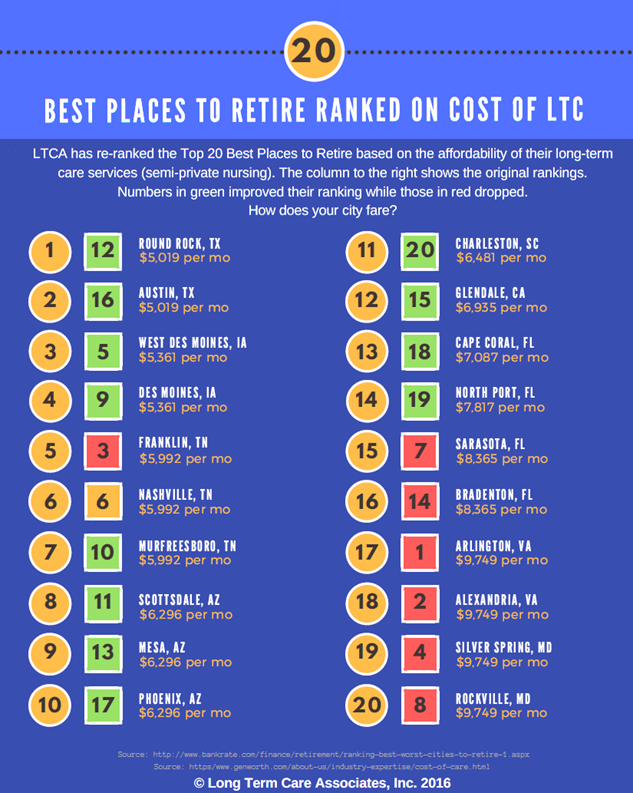 Did your favorite city go up or down after being adjusted for the cost of LTC?
Did your favorite city go up or down after being adjusted for the cost of LTC?
Top 20 Best Places to Retire Based on Cost of LTC Services
Each year Bankrate.com ranks nearly 200 US cities from the best places to retire to the worst, based on an algorithm which combines cost of living and healthcare, year-round climate, tax and crime rates, and quality of life factors. But if a couple were to rely upon such a ranking in choosing where to retire, they would still lack a key metric: the cost of long-term care (LTC) services. For the first time, LTCA has completed this picture by filling in the missing data.
The original rankings favored smaller cities and suburbs for their best-of-both-worlds lifestyle. But LTC costs can vary widely even within states, and will make up the largest potential cost in retirement.
LTCA matched cost of care data against the top 20 places to retire in the categories of nursing facility (semi-private room), alternate care facility (ie assisted living), and home health aide. The data were then used to re-rank the cities by the affordability of their extended care services.
Some families may not understand that how they pay for care can impact which kind of LTC services they receive. While public financing leans toward institutional care, those with private insurance overwhelmingly receive care in the home and community. The sooner one plans, the more choices one has.
The complete Bankrate.com list can be found here. Its data were drawn from the Agency for Healthcare Research and Quality, the Council for Community and Economic Research, the FBI, HealthView Services, Gallup-Healthways, the National Oceanic and Atmospheric Administration, the Tax Foundation, WalkScore.com and the Western States Arts Federation.
The complete Cost of Care data can be found here. Its data were drawn from CareScout, which contacted more than 43,000 providers to complete over 15,000 surveys of nursing homes, assisted living facilities, adult day health facilities and home health providers.






